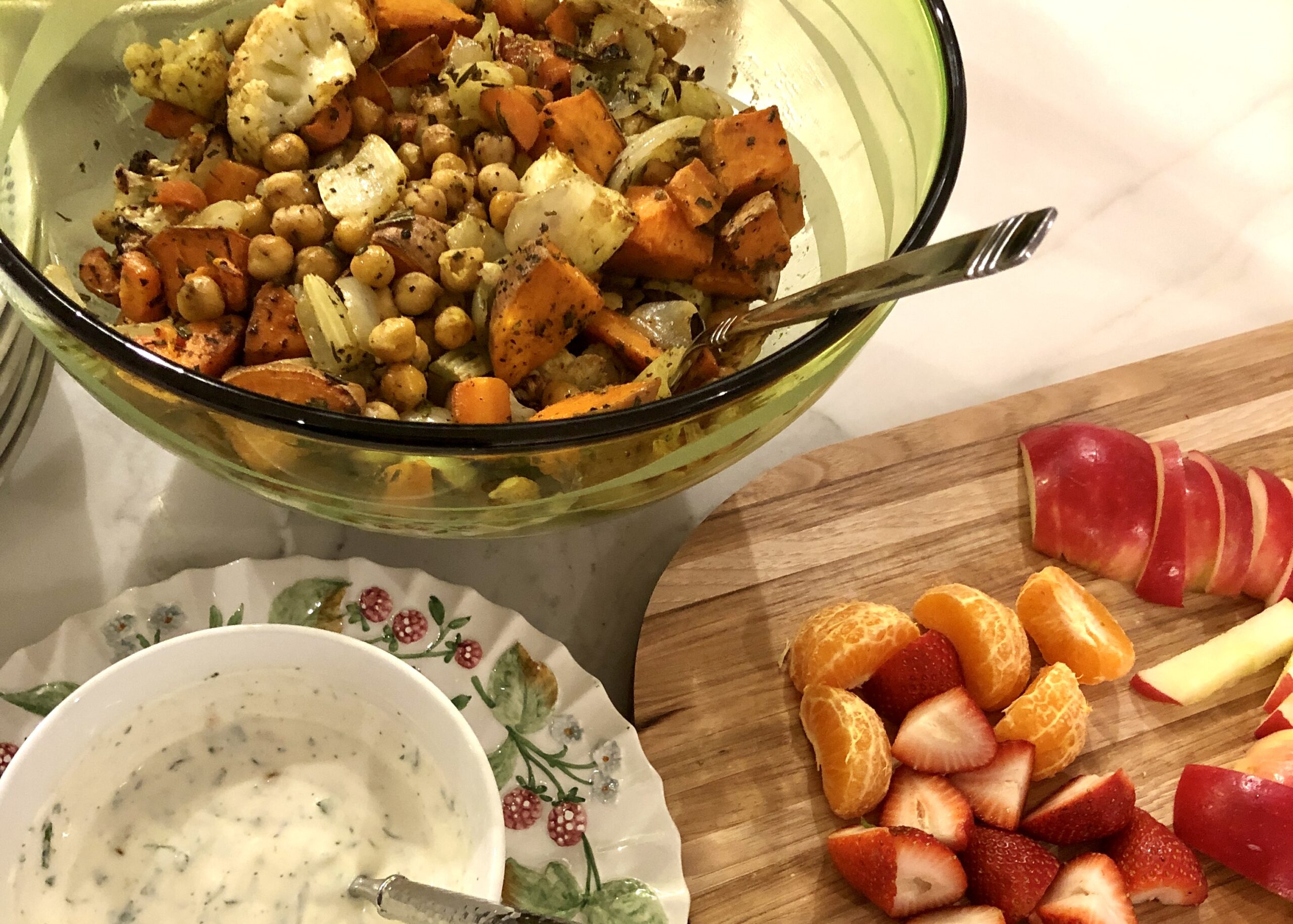Today we will be addressing the challenges that hypermobile patients can face around food as part of our series on EDS & Co. As a refresher, EDS & Co refers to a cluster of chronic illnesses that have gained awareness over the last several years as being rarely diagnosed rather than rare. These conditions include Ehlers-Danlos Syndrome (EDS) or Hypermobility Spectrum Disorder (HSD), as well as comorbidities such as Postural Orthostatic Tachycardia Syndrome (POTS), Mast Cell Activation Syndrome (MCAS), Myalgic Encephalomyelitis (ME), and a variety of autoimmune conditions and other complications. Learn more about the basics of EDS & Co here.
GI complications are one of the most common symptoms for patients with EDS & Co. This is unsurprising. Considering that the GI tract is made up of connective tissue, POTS and other forms of dysautonomia disrupt the “rest and digest” function of the nervous system. Both MCAS and autoimmune disorders can be triggered by food. Other comorbidities of EDS/HSD, such as gastroparesis and MALS, can also cause severe vomiting.
If you get nutrition via TPN / feeding tubes or are considering alternative nutrition, visit our TPN/Feeding Tube Resources and Guides here!
Unfortunately, the solution here is far from one-size-fits-all. One patient’s cure-all foods can be another’s worst nightmare. There are some general tips, however, that can get you started down your own unique path toward GI health.
Disclaimer: The following tips are from my personal experience and are not intended as medical advice.
1. Cut out the shame
Food can carry so much emotion! It is central to socializing, culture, and so much more. Many of us also carry shame or discomfort around our body image and what we eat. Added to this is the significant shame we are taught to feel when talking about GI symptoms like vomiting and pooping. If you have diarrhea, constipation, gas, reflux… adding shame will only increase the agony of your experience. Try to find people with whom you can speak openly about food, body image, and GI symptoms, even if it takes the form of jokes! Keeping silent about these issues can add to feelings of isolation and make our bodies feel even worse.
2. Make eating easier
Have you ever skipped a meal or gone for an unhealthy snack just because you didn’t have the energy to cook? Cooking with chronic illness is really hard. There are ways to make it easier, though! Check out our 5 Cooking Hacks here and tips for on-the-go meals here.
3. Find your triggers
Some GI issues are unrelated to what you eat – cutting out sugar won’t fix gastroparesis or a stretched-out esophageal sphincter. For some, however, trigger avoidance can make a tremendous difference. Pay attention (and write down, if possible) what you eat and drink for a couple of weeks. Did there seem to be any correlation between what went in, what came out, and how you felt in between? Common triggers are:
- gluten
- dairy
- sugar
- caffeine
- alcohol
- highly-processed foods
- leftovers
Try cutting these out to see if symptoms improve. Some other diets to consider –
- Avoiding fatty, spicy, and acidic foods can help with GERD
- Anti-inflammatory diets can help with autoimmune and mast cell diseases
- Low-histamine (or anti-histamine) diets are helpful for MCAS and general allergies
- Low FODMAP diets can help with overall gut distress
- Elimination diets are tricky, but can help you find your unique triggers
**With any new diet, but especially elimination, consult your doctor or dietitian to be sure you are getting enough nutrients.
The good news is that eating certain foods can also improve your health! For example,
- Eating heavy foods like red meat and whole grains slows down digestion, which can reduce diarrhea and intestinal pain
- Eating smaller meals and snacking throughout the day (especially complex carbs, fats, and protein) can keep your blood sugar steady and reduce POTS symptoms
- Adding salt to your diet can decrease POTS symptoms by increasing blood volume (consult a doctor first, to be sure you don’t have hypertension!)
- Chamomile can reduce the general anxiety that often comes with chronic pain and illness
- Foods high in DAO – such as fresh herbs and berries – can reduce mast cell activation
- Anti-inflammatory foods can decrease pain
More information and recipes that you may find helpful:
- Is Food Making You Sick?
- Recipes that can hide a lot of salt here and here
- The Low Histamine Chef
- Anti-Inflammatory Kitchen
- Mighty Well Recipes: comfort foods, pesto, frozen desserts, oat bars, cucumber dill salad

